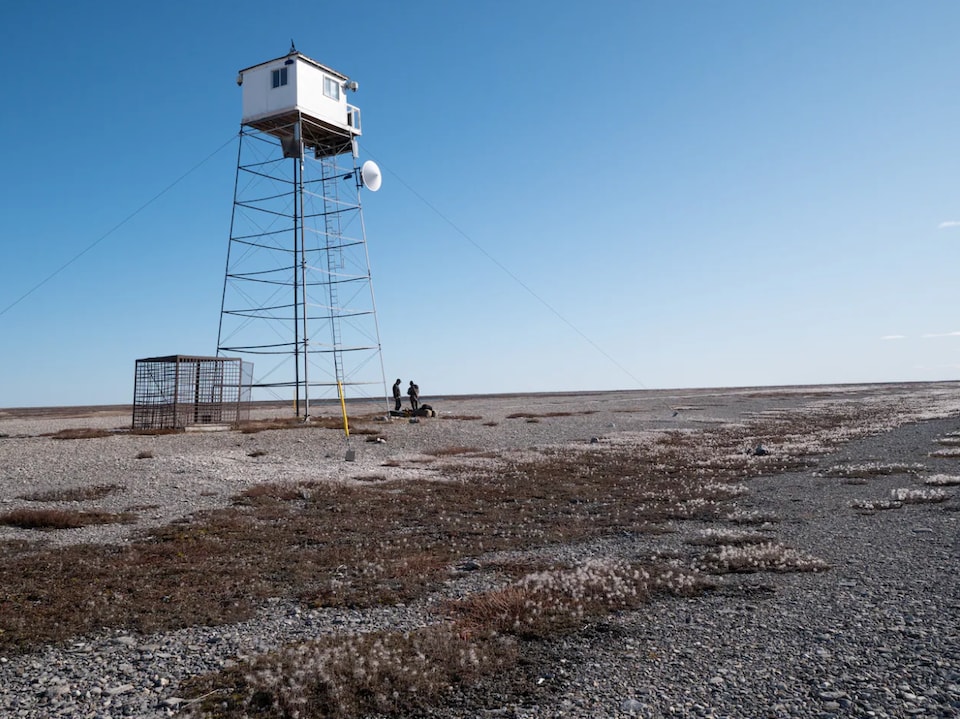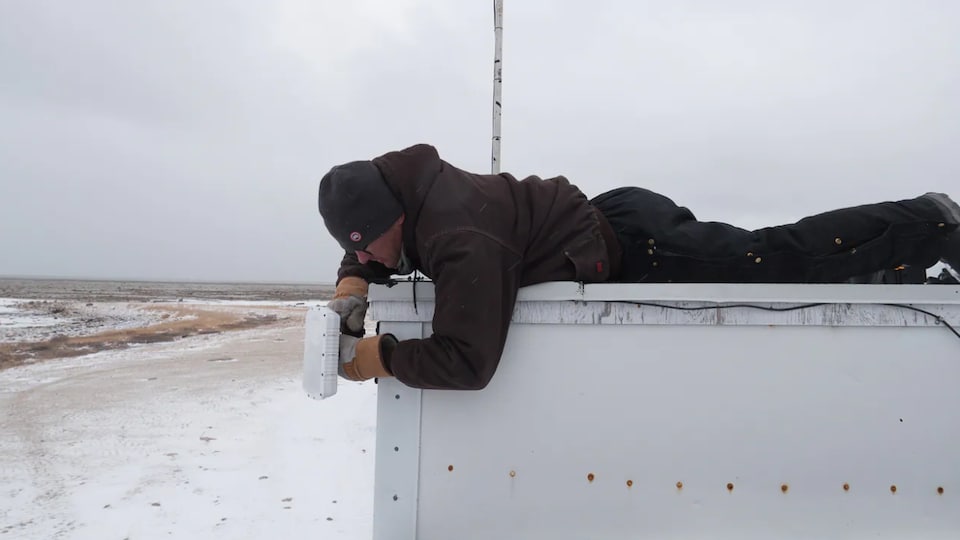Residents of William’s Harbor in Labrador recently had to clean up the clutter caused by a polar bear in almost all of their homes. A non-profit organization in Manitoba offers a radar system to detect this type of visitor.
The bear kicked in doors, smashed windows and robbed pantries on Friday. He also cut a couch and scattered clothes all over the place.
Such injuries are rare, said one resident, Cliff Russell, whose house is one of them. The bear found food and seemed to have learned to enter houses, he explained.
Cliff Russell It seems that more and more bears are visiting the area. He wants to give the authorities more bear hunting permits.
Provincial authorities explain the presence of bears by ice conditions and the presence of seals. They estimate that bears aren’t much for all that and they don’t plan to increase hunting.
The Department of Fisheries, Forestry and Agriculture counted 2015 bears in the Strait of Davis in its most recent survey in 2017-2018. He considers the species vulnerable, but not endangered.
If the search for seals is allowed, it will cause bears to look for food sources elsewhere, it added. Cliff Russell.
Detect bears using radar
The organization Polar Bear International conducts tests with three radar models around Churchillin Manitoba, in hopes of putting a point that could be used to spot polar bears.
The organization’s director, BJ Kirschhoffer, sees this as a way to reduce the risk to both humans and bears.
The group works with the manufacturer SpotterRF and quickly understood that radars detect all movement. The artificial intelligence of the system is therefore programmed to recognize the movements of different animals to avoid false alarms. The system needs to be very accurate to be reliable, Kirschhoffer pointed out.
Radar has missed a few bears in recent years, however. A bear that is not motivated by food or companionship walks slowly and often stops to sniff air and is harder to identify, Kirschhoffer says.
According to him, any community that wants to try out this system can apply for a grant to build a tower to install radars at an estimated cost of $ 50,000.
According to the report of Heidi Atterng CBC
Source: Radio-Canada



